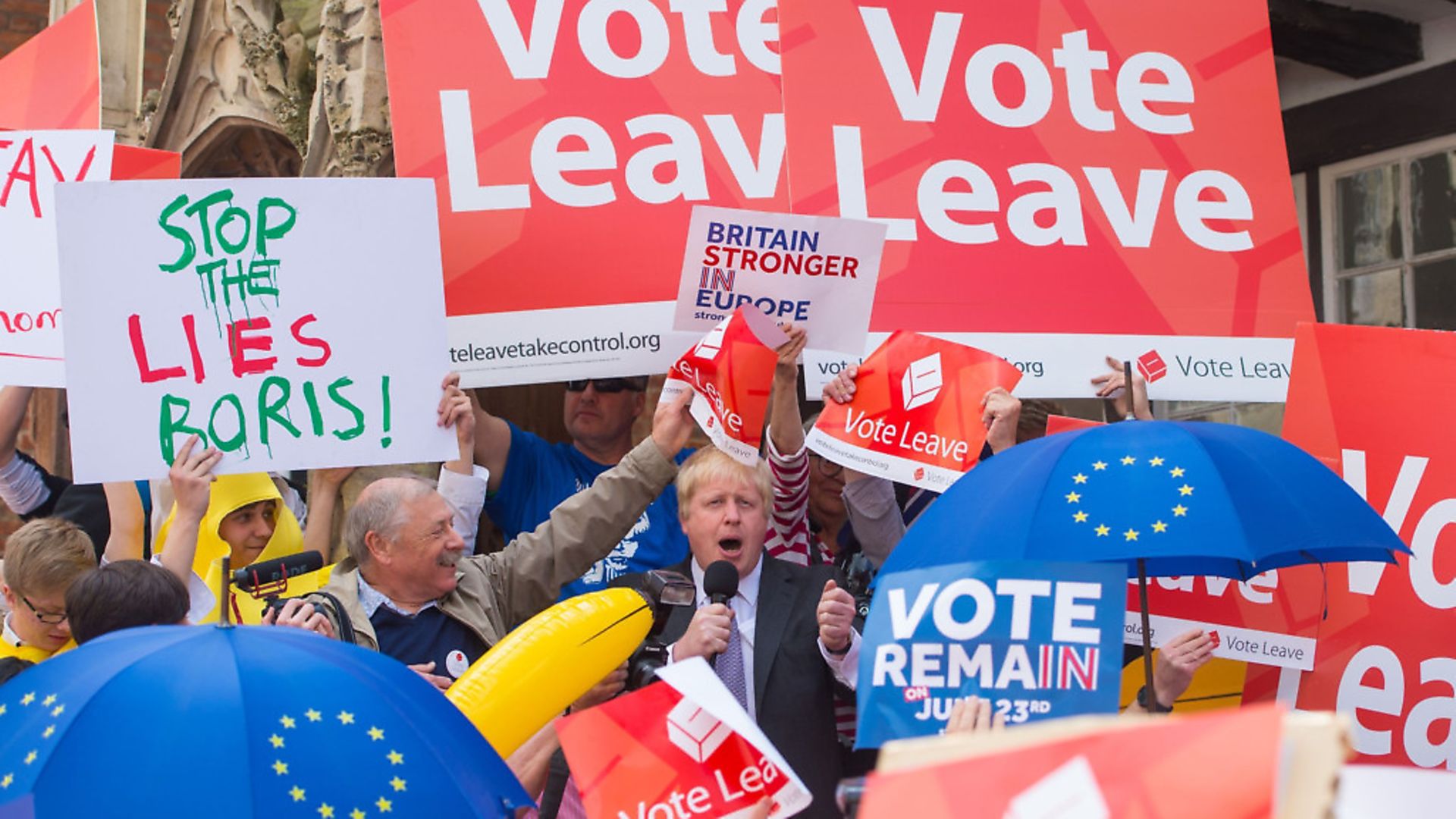
Enough is enough. If Leavers are really convinced about their policy, they must convince us afresh, says Guto Harri, a former aide to leading architect of Brexit Boris Johnson
Got any gifts for Christmas you didn’t really like? Something that didn’t fit perhaps – or didn’t work as it was meant to? Something chosen for you with the best intentions maybe, but that you really don’t want it? The good news is that you can take it back. Under consumer regulations you normally have two weeks to – most shops will give you a little longer if you kept the receipt.
We are also entitled – as consumers – to change our mind about major purchases of our own. If you’ve started this new year trying to tighten your belt or cover your back for some serious setbacks, you may be switching your mortgage, locking some money into savings or insuring yourself for loss of work, health or life. Again, you don’t have to go through with it, especially if you were under any pressure to sign up initially.
Under Consumer Contracts Regulations there is a cooling-off period when we have a legal right to a refund on any product or service that we were ‘unfairly pressured into buying’, or ‘misled about’ or ‘tricked into buying by a fraudulent seller’. This applies to door-to-door selling, telephone or online. And it’s acknowledged that consumers change their minds rationally all the time.
If banking, credit, insurance, personal pension, investment and many payments are subject to a ‘cooling-off’ period, surely we should be allowed to reflect upon, and potentially reconsider, a decision with such vast repercussions as Brexit. I try not to cry over spilt milk, but we are surely allowed to remind ourselves what happened in the first two weeks after that referendum. The man who called it, David Cameron, retired from politics. The man who made him call it, Nigel Farage, resigned his party’s leadership. The man who turbo-charged the Leave campaign, Boris Johnson, bid for the top job then withdrew because his side-kick in that fight, Michael Gove, shafted him. And a woman who never wanted to leave was crowned Conservative leader and swore to deliver a policy she cautioned against. The Labour leader throughout proved utterly irrelevant, offering no alternative to a shocked and anxious public.
So two years on, many of us surely feel we were ‘unfairly pressured’, or ‘misled’ or ‘tricked into buying by a fraudulent seller’. Given the opportunity in cabinet to deliver what they advocated, Boris Johnson, David Davis and Dominic Raab concluded it couldn’t be done. Others like Michael Gove, Liam Fox and Andrea Leadsom have hung on in there, but the main momentum for the only orderly Brexit on offer is from a prime minister and some key allies who thought Brexit was a bad idea in the first place.
It’s in this bizarre situation that we are told that another referendum would be a ‘betrayal’ that could ‘break our politics’ and perhaps even lead to ‘civil unrest’. Really? Democracy, by definition, is about seeking the ongoing consent of the people to govern in their name. And the people change.
The pollster Peter Kellner has articulated a poignant point of demography brilliantly. Leave voters outnumbered remain by 1.3 million in 2016, but since then roughly 1.2 million voters have died, while 1.4 million have entered voting age. Simply by applying each group’s propensity to vote for Brexit or against it, respectively, the Leave lead would disappear.
Polls are fickle, but most suggest there has been a shift over two years – even if the Remain majority they detect is narrow. Fresh, detailed polling, conducted for Best for Britain, shows that two thirds of constituencies now support Remain. Well over half the constituencies in England now want to stay, and there is a pro-EU majority in every Scottish seat and all but one in Wales.
But – as with a mortgage or life insurance – a second referendum need not be about stopping the clock and reversing the decision. Most of us – if we made our initial decision in full knowledge of the facts, in the cold light of day and sober – will stick to it. I have never taken advantage of a cooling-off period. So let the Brexiteers make their case again and prove that a specific proposal, accurately articulated with no distortions or breaches of electoral law, can win hearts and minds. And if they are serious about not breaking up the Union, as they say they are, they could do with new raising support in two key areas: Scotland, where 62% rejected Brexit; and, in particular, Northern Ireland, where 55.8% did so. And having heard so much, since then, about the backstop, talk of a new border and threats of a return to violence, the people there surely deserve a chance to embrace or reject what is now a very specific proposal with clear implications for them.
Time to think again ? I think so.
Guto Harri is a communications consultant. He is a former BBC chief political correspondent and worked as Boris Johnson’s communications director when he was mayor of London









